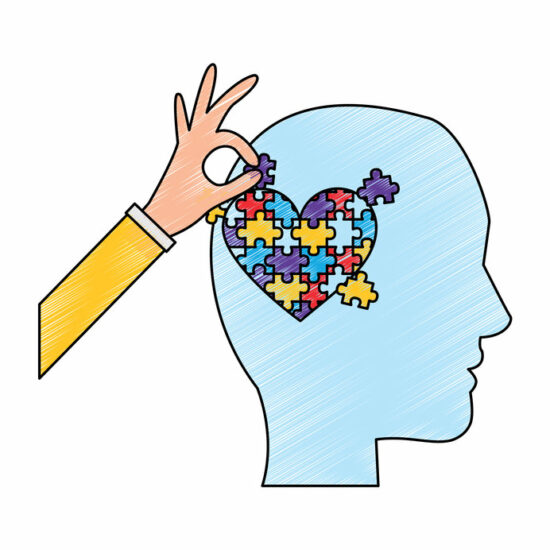Our thanks to the Department of Health and Human Services for putting these great hints and tips together.
January’s Mental Wellness Month highlights the importance of integrating both emotional and physical health.

“Mental wellness involves being able to cope effectively with the difficulties of life, having an awareness of your own abilities and opportunities, and having healthy relationships with yourself and others,” said Sheri Dawson, director of the Division of Behavioral Health at DHHS. “The key to mental wellness is being proactive and taking care of our mental well-being before issues arise. By focusing on improving mental wellness and building resiliency, you can overcome the hurdles of life and thrive. It is always a good time to work on mental wellness. Identify one small step you can take to improve and stick with it. People with healthy emotional wellness are confident, have control over their feelings and behavior, and have good coping mechanisms for dealing with difficult situations.”
Mental health is affected by many things, such as work, school, relationships, financial problems, and excessive stress. Physical factors like illness can make you susceptible to mental wellness issues. You may be new to working on mental wellness. There are eight areas to consider that impact your overall wellness. Select one area and take a step toward improvement every day.
Eight areas of wellness:
-
Mental: Capacity for knowledge, insight, confidence
-
Physical: All that contributes to how our body feels/functions
-
Emotional: Highs and lows of emotions, feelings
-
Spiritual: Belief system not necessarily formal religion
-
Social: Connection and community
-
Personal: Interests, joy, fulfillment
-
Professional: Roles at work, career goals
-
Medical: Health numbers or statistics
Tips to enhance mental wellness:
-
Follow the after-work checklist: Review (acknowledge a challenge you faced, take a deep breath and let it go); Reflect (however small, consider and appreciate positives in your day); Regroup (offer support to your colleagues and ask for help when you need it) and re-energize (turn your attention to home and focus on relaxing and resting.)
-
Create a mental health wellness plan: Create a guide of coping skills, people to talk to in stressful situations, and enjoyable activities to ensure that you maintain the balance between your thoughts, emotions, and behaviors.
-
Practice self-acceptance: Use the new year as an opportunity to practice self-acceptance and self-esteem.
-
Put yourself first: Self-care isn’t selfish. It’s important to take time every day for yourself and your mental health. Engage in something that is meaningful and brings you joy. Do what helps you relax and recharge, and seek out experiences that have a calming effect.
-
Learn a new skill: Creative hobbies can provide a sense of pride and achievement.
-
Exercise: Exercising for at least 30 minutes every day can help alleviate symptoms of depression and anxiety. Go for a walk, ride a bike, take a fitness class, or play a sport with friends and family.
-
Be grateful: Practicing gratitude every day can invoke feelings of thankfulness and optimism that make managing challenges easier. Don’t beat yourself up when you make a mistake – everyone makes them.
-
Eat well: A balanced diet contributes to both physical and mental health.
-
Get enough sleep: Most health authorities recommend that adults get between 7 and 9 hours of sleep each day. Avoid caffeine after lunchtime.
-
Slow down: Notice with intention the things you are doing. Draw your awareness to the moment especially those that are positive.
-
Ask for help when you need it: It’s a sign of strength to reach out to resources and supports when your mental wellness is suffering.
Need to talk or get immediate help in a crisis? Help is available. If you or a loved one need assistance, please reach out to:
-
National Suicide Prevention Lifeline: 1-800-273-TALK (8255) for English, 1-888-628-9454 para Español
-
Your faith-based leader, your healthcare professional, or student health center on campus.
-
Nebraska Family Helpline – Any question, any time. (888) 866-8660
-
Rural Response Hotline, (800) 464-0258
-
Disaster Distress Helpline: 1-800-985-5990 (oprime dos para Español) or text TalkWithUs to 66746.
-
National Domestic Violence Hotline: 1-800-799-7233 or text LOVEIS to 22522
-
National Child Abuse Hotline: 1-800-4AChild (1-800-422-4453) or text 1-800-422-4453
-
National Sexual Assault Hotline: 1-800-656-HOPE (4673)
